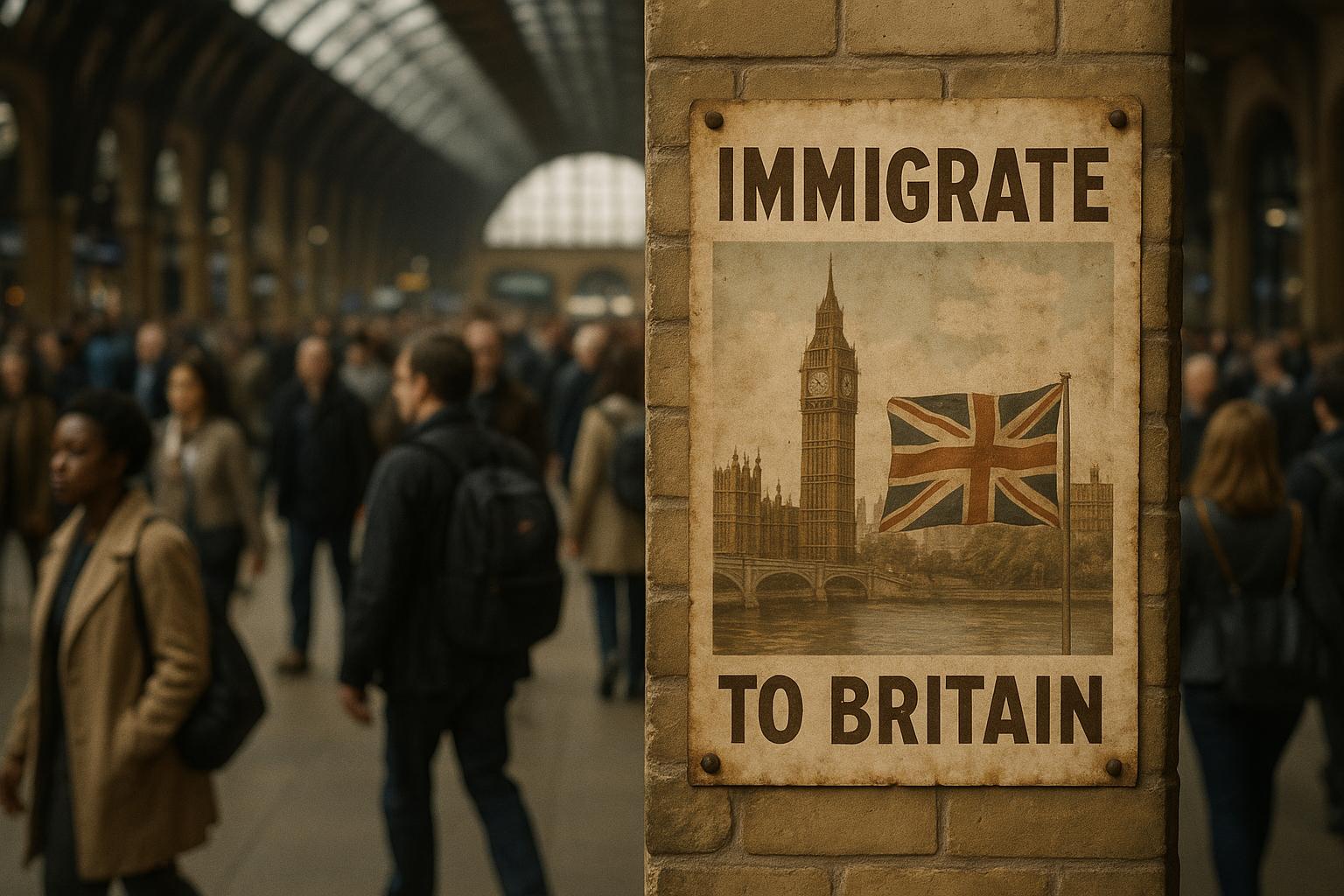In 1997, the United Kingdom experienced a significant political shift with the arrival of Tony Blair’s government, which presented itself as a moderate and modernising force. However, beneath its calm exterior, this administration pursued a radical agenda that has reshaped the country in profound ways. Central to this transformation was a dramatic increase in immigration, which, according to newly available statistics, vastly outpaced previous trends. Between 1969 and 1997, the UK’s population grew by three million, but in the subsequent 28 years, that figure ballooned to 11 million—a surge that is visible in crowded roads, overstretched public services, and strained infrastructure. This demographic shift reflects a deliberate policy objective to make Britain more multicultural and fundamentally alter its social and political landscape, a strategy confirmed by former Blair speechwriter Andrew Neather, who revealed that the government sought to “rub the Right’s nose in diversity” and marginalise traditional Conservative arguments.
The consequences of this policy, often unspoken by the Blairites, are plain to see today. Pressures on schools, hospitals, GP surgeries, housing, and transport have intensified to unprecedented levels, exacerbating social tensions. Additionally, the political fallout has been severe: Labour’s historic base among the white working-class has eroded significantly since the 2016 EU referendum, as these voters increasingly reject the party’s stance on immigration. This has left the Blairite elite reliant on accusations of racism to defend their position—a tactic that has lost much of its potency over time, particularly against figures like Nigel Farage and recently Conservative leader Kemi Badenoch, who is signalling a decisive departure from the old consensus.
Kemi Badenoch has swiftly moved to challenge nearly three decades of Blairite policy with a new immigration approach. Her proposals mark a substantial shift, including plans to tighten the criteria for indefinite leave to remain (ILR) by doubling the required residence period from five to ten years and ensuring migrants are net contributors to the economy. Migrants who claim benefits or use social housing would face greater scrutiny or disqualification. Badenoch has framed these measures as necessary to curb the “astronomic” financial burden imposed by Labour’s previous lax approach, which a Centre for Policy Studies report estimates could cost taxpayers upwards of £200 billion by 2040, with households potentially bearing an £8,200 cost each to support nearly 800,000 new arrivals expected to settle permanently. The majority of these migrants, the report states, may be low-paid workers reliant on taxpayer subsidies rather than self-sufficient contributors.
Badenoch’s candid admissions also reflect an acknowledgment within the Conservative Party that previous policies allowed immigration to spiral unchecked, placing an unsustainable strain on public services and complicating social cohesion. Despite pledges to reduce net migration, figures have reached record highs in recent years, with 745,000 recorded in 2022 before a slight fall to 685,000. She insists the UK cannot sustain these levels and vows to implement a strict numerical cap to bring control back to manageable levels.
The proposals have sparked debate about the nature of British citizenship and residency. Badenoch emphasises that a UK passport should be considered a privilege earned through demonstrated commitment, economic contribution, and adherence to lawful behaviour, rather than an automatic right. This more restrictive approach extends even to refugees from certain regions who may be barred from settling permanently, further underlining a tough line on immigration control.
The longstanding Blairite strategy of using mass immigration as a political tool to redefine the UK’s cultural and political identity now faces critical scrutiny and pushback. As the Tory Party seeks to reconnect with voters who felt alienated by decades of demographic and policy change, Badenoch’s leadership could signal the beginning of a Conservative renewal. Yet, political observers caution that infighting within the right-wing voter base could squander this opportunity, allowing Labour and other opponents to capitalise on divisions.
Ultimately, the legacy of the Blair era’s immigration policy is a deeply transformed Britain—more populous, diverse, and challenged. Whether this transformation is sustainable or reversible remains the central question as new leadership charts a course between past compromises and the demands of a frustrated electorate.
📌 Reference Map:
- Paragraph 1 – [1], [7]
- Paragraph 2 – [1], [7]
- Paragraph 3 – [2], [4], [5], [6]
- Paragraph 4 – [3], [2]
- Paragraph 5 – [4], [6]
- Paragraph 6 – [1], [2], [3], [7]
Source: Noah Wire Services
